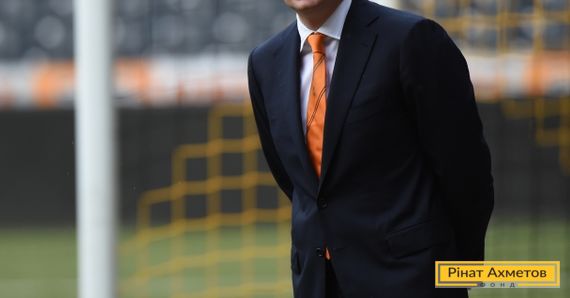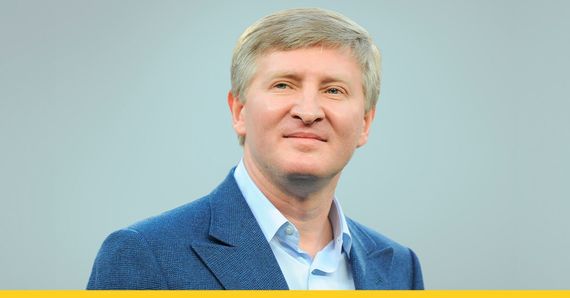Serhiy Palkin: «Shakhtar lives in hope of returning to Donetsk»

General Director of Shakhtar Football Club told 'Segodnya' about his visit to Donetsk, the teams' life away from the hometowm and the current state of Donbas Arena, which is used for saving lives of thousands of civilians.
‒ Serhiy, recently you visited Donetsk. Did you check out Donbas Arena, and what is going on there now?
‒ All the Shakhtar objects are maintained in full order. The brightest example is the appearance of the park around Donbas Arena. Aside from the Arena and Kirsha base I also visited Shakhtar stadium, which was a training place for our Children's Academy for all this time. There were many children with their parents there. It is good that children come to us to play football, and there are more and more volunteers.
‒ For two years Donbas Arena is being the largest humanitarian logistic hub. How did you come to this solution and why did Shakhtar start helping people?
‒ By decision of Rinat Akhmetov in August 2014 the Humanitarian Center was established to help Donbas civilians, Shakhtar Football Club became part of it. Very few people know this, but initially, during the first days of the Humanitarian Center's operation, they considered other city objects for unloading and sorting of humanitarian products. But we suggested that humanitarian aid was delivered at Donbas Arena, because we knew that our stadium had everything for high-quality and fast operation: easy access, space for storage and packaging, and, most important, the work force – Arena and football club employees, who stayed in the city. Hundreds of thousands of Donetsk residents found themselves in severe conditions. We were obliged to help our compatriots: elderly people, women and children. It was important for us to have all of our resources involved in helping people during this difficult time as much, as possible. And just like that Donbas Arena became the humanitarian logistic centre.
‒ How do you manage to maintain the infrastructure of Donbas Arena?
‒ Sports infrastructure of the football club is maintained at a good level and is ready to take the team any time. The lawn of Donbas Arena is supported by the club's specialists, it's in perfect condition. Some of our employees are involved in the Humanitarian Center's work, others are busy at our infrastructure objects, the third group of colleagues is working at Children's Academy.
‒ How is the stadium working in its new capacity today?
‒ Donbas Arena keeps on functioning thanks to the Humanitarian Center's operation. At the moment about 350 football club employees and 400 volunteers participate in everyday food packaging, transportation of survival kits to the city districts and their issuance. Some volunteering employees are staying at Donbas Arena practically 24 hours a day, dealing with arrangement of this complex process that involves many risks. This is a kind of charity force for them.
‒ What are the main lessons learned from this work format and do you think that they may come in handy in the future, in peaceful life, for example?
‒ There were many difficulties on the Humanitarian Center's way. They concerned organization of issuing points and distribution mechanism itself. During the very first days our employees delivered assistance to people in actual combat conditions, risking their own lives. Today we also face problems and obstacles, but it is important for us to support our compatriots, help them to survive through these severe conditions. This is the main lesson for peaceful life as well. Help and be there for those, who got in trouble. The football club President, Rinat Akhmetov, repeatedly said that we would keep on going this way, continue delivering food, medications and doing everything possible and impossible. As for experience, it surely is unique, but let's hope that it never and nowhere comes in handy.
‒ Two years have passed since the outbreak of the armed conflict. How often do your football players think of Donbas Arena?
‒ Constantly. For Shakhtar Donbas Arena cannot be replaced by any other stadium. This is the home for Shakhtar, for our fans, the place where each of our players wants to come back, as soon as it is possible.
‒ What do you think Shakhtar and Donbas Arena currently mean to people, both who left Donbas and staying is Donetsk?
‒ Shakhtar is the symbol of Donetsk. And Donbas Arena is the symbol of humanity and compassion. Once the club returns to the city, we can talk about the end of the conflict. During my trip to Donetsk I visited several points of humanitarian aid issuance: I talked to those, who receive humanitarian aid, wondered about their opinion. Donetsk residents are waiting for return of peaceful life and their favourite team, and they are grateful to the President of Shakhtar from the bottom of their hearts. Many of our compatriots survived only thanks to his Humanitarian Center, literally.
‒ This year Shakhtar has a new coach. What goals do you set for him and what do you expect from the team?
‒ As for our goals, everything is quite simple. We must win the championship and the Cup of Ukraine. The goal in the Euro Cups is to qualify for the group stage of the Euroleague and reach the final. Paulo Fonseca is an ambitious trainer, and we believe in success and new great victories.
‒ Do you currently think of coming back to Donetsk?
‒ Shakhtar had to play away from its home stadium, hometown, we had to overcome serious difficulties, often not related to football. Sometimes it didn't go well, but we never gave up. We continue to fight and bear the proud name of Donetsk club, because we feel the emotional support of fans, we know that our supporters all over Ukraine and abroad need us. Shakhtar lives in hope of returning to Donetsk, to our Donbas Arena.



